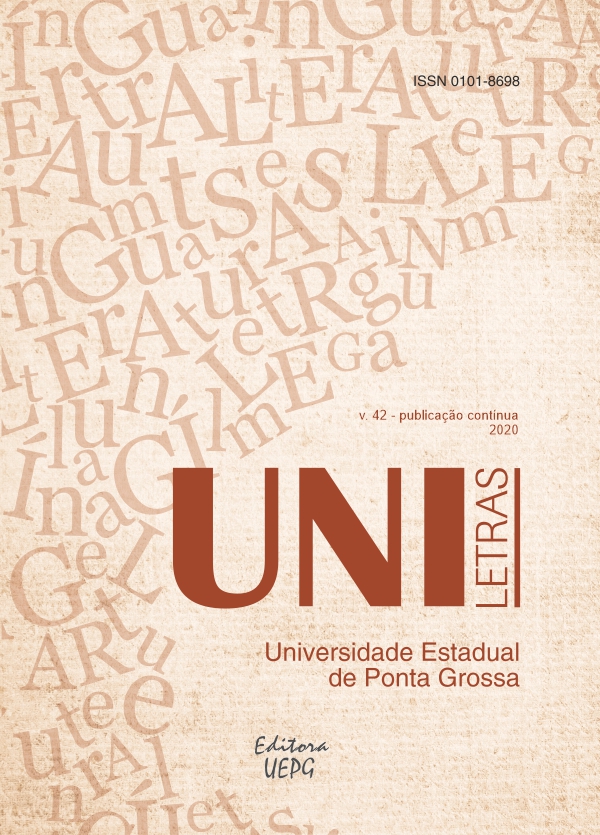ACADEMIC STYLE AND INDIVIDUAL STYLE IN FINAL PAPER UNDERGRADUATE OF LETTERS: STYLE IMPLICATIONS FOR THE LITERACY ACADEMY STUDIES
Abstract
The behavior of academic texts can be understood from two diametrically opposed factors, however, copresents in the texts. These are factors that generate stability, contiguous or parallel to creative factors that generate transformation. In this sense, with the present study, which is part of the broader study that aims to investigate ways of subjectivity inscription in academic genres resulting from the Final Paper of Undergraduate in Letters from Paraná, we seek to catch the power relations in abstracts of academic genres, articles, monographs and essays, under a stylistic approach in the light of the perspective of literacies, discourse and enunciation, anchored in a dialogical understanding of language. The methodology adopted is qualitative research of documentary type. The corpus consists of 46 abstracts of TCCs defensed in 2018. The main results indicate that the academic style is not homogeneous, but full of imbrications resulting from the confrontations between subjectivity, language and power.
Downloads
Downloads
Published
Issue
Section
License
Authors that publish in the journal agree with the following terms:
a) The authors keep the copyright and grant to the journal the rights of the first publication, with the work simultaneously being licensed under the Creative Commons Attribution License that allows the sharing of the work with the recognition both of the authorship and the initial publication in this journal.
b) This journal provides immediate public access to all of its content, following the principle that making scientific knowledge freely available to the public provides greater worldwide democratization of knowledge. For more information about this approach, visit Public Knowledge Project, a Project that developed this system to improve the academic and public quality of research, distributing OJS as well as other softwares to support the publication system to public/open access to academic sources. Names and e-mail addresses in this website will be used exclusively for this journal purposes, not being available for other ends.

This work is licensed under a Creative Commons Attribution 4.0 International License.





